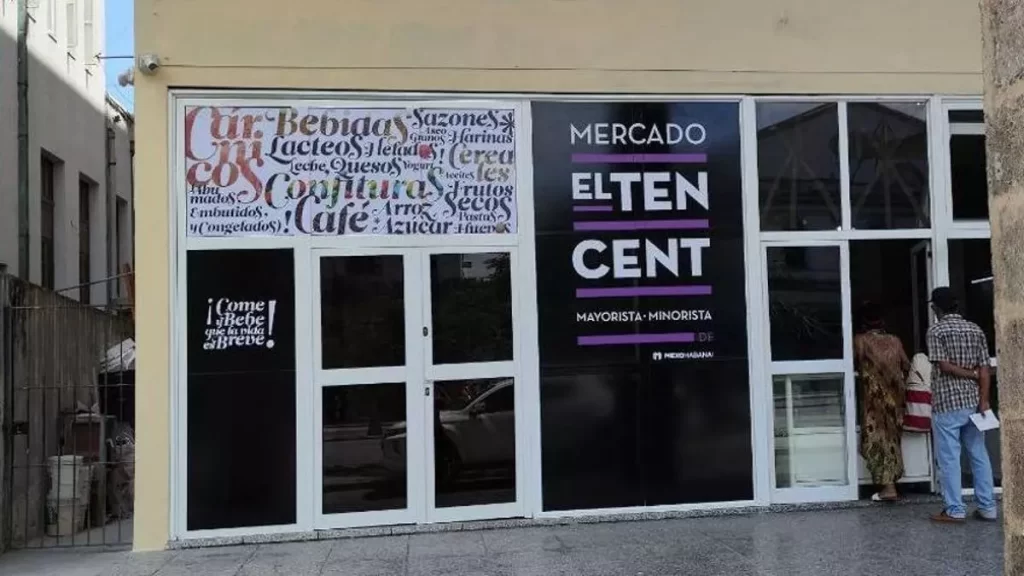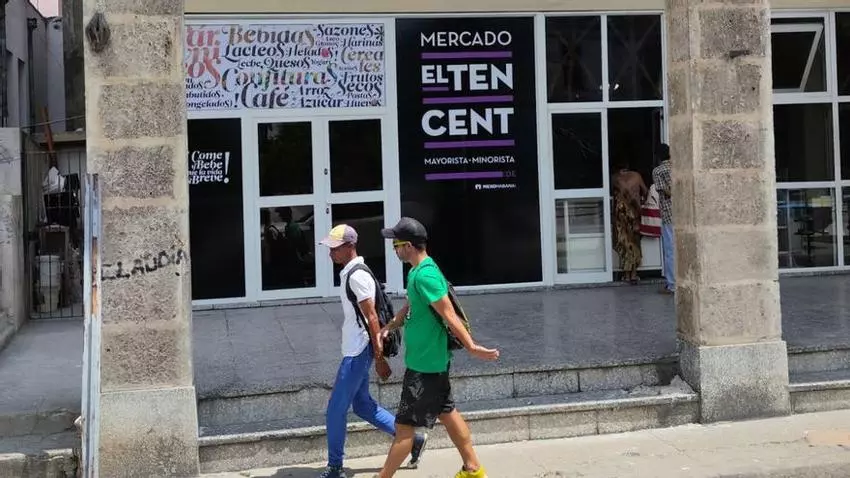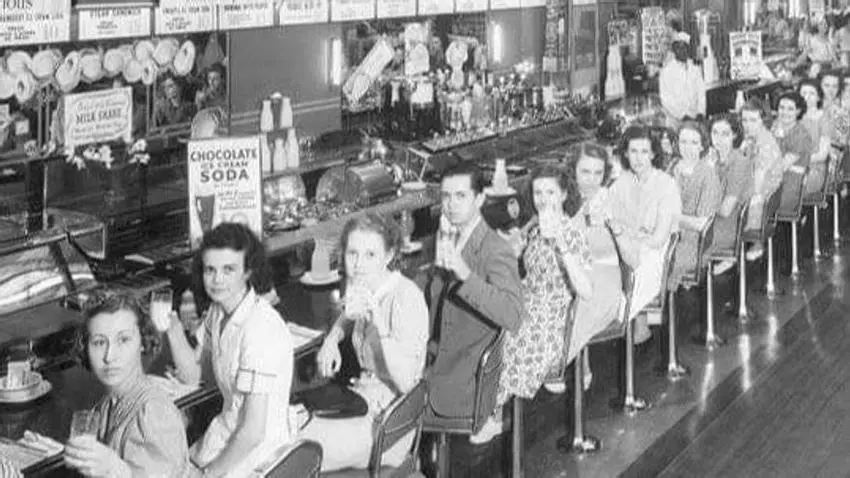•”Eat, Drink and Be Merry for Life is Short!,” reads a sign at the entrance on Carlos III Street*
• The privately-owned business has taken over a sizable portion of a state-run pharmacy, which now has only a single counter to serve customers.

![]() Juan Diego Rodríguez, Havana, 30 April 2024 — The broad avenue in Central Havana already has a large currency exchange, a botanical garden and even a park dedicated to Karl Marx. What it lacks is a pharmacy combined with a privately run food and beverage store. Located at 704 Carlos III Street, the space has been divided into a small area which serves as a drug store and another, larger area for food and drinks.
Juan Diego Rodríguez, Havana, 30 April 2024 — The broad avenue in Central Havana already has a large currency exchange, a botanical garden and even a park dedicated to Karl Marx. What it lacks is a pharmacy combined with a privately run food and beverage store. Located at 704 Carlos III Street, the space has been divided into a small area which serves as a drug store and another, larger area for food and drinks.
“The Ten Cent Wholesale-Retail Market” reads a sign in a store window, which has been decorated for the occasion. “Eat, Drink and Be Merry for Life Is Short,” reads another sign, this one to the left of the entrance, which — like the rest of the store’s windows —has conveniently been blacked out to keep curious passersby from being able to see what is inside.
On the same sign and in smaller print is the name of the company managing the store: Mexohabana. The business was added to the list of privately-owned small and medium-sized companies (MSMEs) that officials approved in May, 2023. It is registered in the Revolution Plaza district and licensed to provide food services.
The darkened windows and air of secrecy have only fueled speculation about the project. On Tuesday, a woman approached the narrow counter in the part of the building that still operates as a drug store. Customers are no longer allowed inside the poorly stocked pharmacy, which seems lifeless compared to the buzz of the private company with which it shares the iconic retail space.

“Do you have Enalapril?” asks the woman who, after being told no, took the opportunity to inquire about the store next door. The employee, reluctant to answer questions, only says, “It seems that they’ll be opening next week.” Another customer, however, a resident of the neighborhood, jumps into the Ten Cent conversation. “They’re putting a lot of money into it. High-quality refrigerators, displays for drinks, counters and lots of boxes with merchandise,” she says.
The owners have spared no expense. Besides spending money on decorations to the entrance, they have also installed new exterior lighting, a new air conditioning system and Axis point-of-sale terminals. Building repairs include painting the walls and solving the decades-long drainage problems.
“From the outside it looks like a different country, like a store in a capitalist country,” observes a street vendor who has placed his meager offerings on a blanket a few yards away. They consist of an empty liquid detergent bottle, some worn women’s shoes, and some half-empty matchboxes. “Several homeless people here at night,” he explains.
There’s been talk of its being an MSME since they started working on it. With the police and the pressure, they’ve been making life difficult for people here,” he says. “They say we have to clear out because there’s going to be a lot of customers and we can’t block the sidewalk or create a bad impression.”
The man finds the use of the Ten Cent name on the façade of the new store nothing if not ironic. “I used to go the one on Galiano Street when I was a child. My grandmother used to take me to the café. I worked nearby, after they had already changed the name and you needed a ration book to buy things there. I never imagined that I would ever see it come back”.
The Ten Cent stores were very popular in Cuba, particularly in Havana, where five of the ten outlets were located. The retail stores, subsidiaries of the North American parent company F. W. Woolworth Company, were located on downtown Havana streets and avenues such as 23rd, Obispo, Monte and Galiano. Many customers were attracted by the spacious sales floors and reasonable prices, which are etched in their collective memory.

Even today, the name Woolworth is still visible at some of these stores, set in stone at the entry threshold. Older Havana residents continue to refer to them as “Ten Cent,” their original name. Symbols of capitalism and consumption, they succumbed to the wave of nationalizations that swept the country after Fidel Castro came to power in 1959
The new Carlos III Street store is a nod to that pre-communist past. Ironically, it seems that, in order to get built, it needed to take over a substantial portion of a state-run pharmacy that had fallen into disrepair due to the collapse of the Cuban pharmaceutical industry. Where dipyrones, aspirin and mortars were once stored before being crushed and mixed into compounds in the dispensary, imported beers, imported cookies gouda from Holland will soon be on display.
“You don’t know when you’re going to be getting Diazepam?” asks an elderly man standing just outside the narrow door where a makeshift counter has been placed. It serves as the only remaining point of contact between customers and pharmacy employees. “No, Grandpa, I don’t know,” the employee responds tersely. The used goods seller takes the opportunity to chime in, saying in a loud voice, “Diazepam is what we’re going to need to calm down after we see the prices in there because we won’t be able to buy anything for ten cents!”
The gangly silhouette of the man with the knick-knacks is reflected in the glass, just below the invitation to “Eat and drink and be merry, for life is short!”
*Translator’s note: A version of old, popular Spanish rhyme, “Hermano, bebe que la vida es breve.
____________
COLLABORATE WITH OUR WORK: The 14ymedio team is committed to practicing serious journalism that reflects Cuba’s reality in all its depth. Thank you for joining us on this long journey. We invite you to continue supporting us by becoming a member of 14ymedio now. Together we can continue transforming journalism in Cuba.
